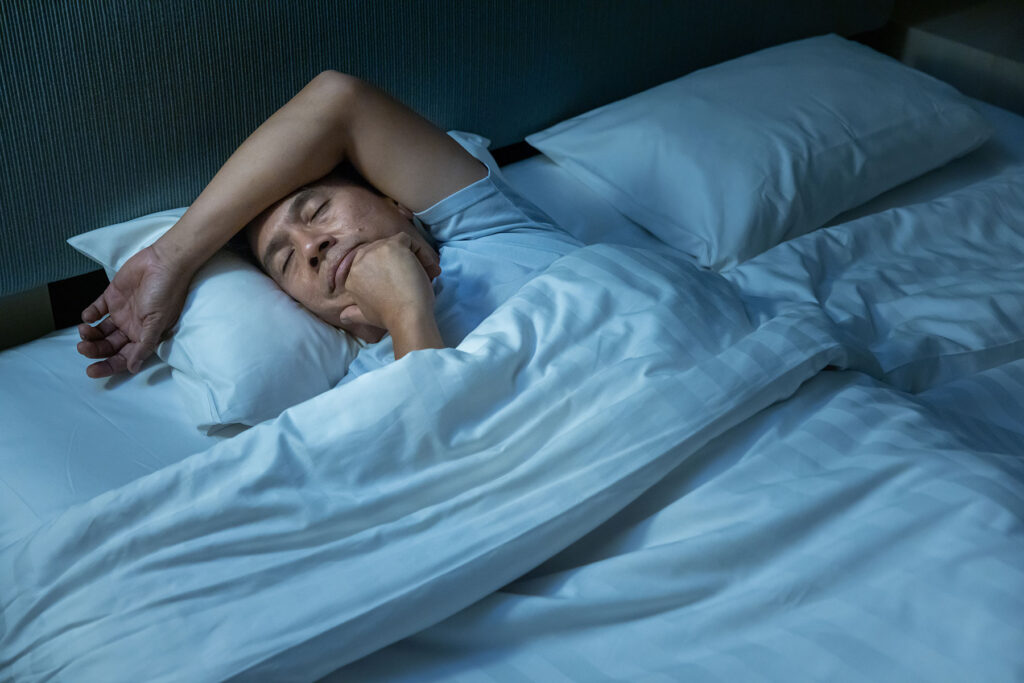Alcohol can have many negative effects on the body, but one thing many people are not aware of is the connection between nightmares and alcohol. At our alcohol rehab center, Promises, we offer treatment programs for alcohol use disorders to help you or a loved one manage an addiction.
Learn more about the impact alcohol can have on your mind and body by calling us at 844.875.5609.
Alcohol Nightmares Make for Difficult Nights
Because alcohol is a depressant, it slows down brain function and can make you sleepy, so you may think it can help you sleep. The opposite is true. Yes, alcohol does cause fatigue, and you may fall asleep after drinking, but your liver quickly metabolizes it.
Once your liver metabolizes it and the alcohol levels in your blood drop, you can start experiencing alcohol nightmares because you’re dreaming more shallowly. You may also wake frequently during the night. All of this leads to a restless night that leaves you exhausted.
Nightmares and Alcohol Withdrawal
Alcohol withdrawal is a complex process that can be dangerous when attempted without medical supervision. It can involve symptoms like:
- Anxiety
- Tremors
- Headaches
- Nausea
- Mood swings
- Fatigue
- Increased blood pressure
- Increased heart rate
- Hallucinations
- Gastrointestinal issues
Another symptom that not everyone knows about is nightmares. As you sleep, you cycle between non-REM sleep and REM sleep, with each cycle lasting about 90 minutes. You do most of your dreaming during REM sleep, which makes up about 20% of your sleeping time.
Stopping the use of alcohol can interfere with the natural cycle of sleep. Alcohol use decreases REM sleep, but alcohol withdrawal increases it. It’s called REM rebound, and it can lead to very vivid dreams, nightmares, and even night terrors. The cycle imbalance can last for a few weeks once you stop drinking.
Breaking Away From Alcohol Addiction
If you struggle with an alcohol use disorder and want to find your back to sobriety, we can help at Promises.
Perhaps one of the most crucial steps in the process of recovery is beginning with medical detox services. Dealing with nightmares and night terrors is difficult, but trying to manage other withdrawal symptoms without medical supervision can be dangerous.
If you have a medical team helping you stabilize, you can have an easier time focusing on therapy and not cravings or other issues.
Residential and Outpatient Treatment
After completing a detox program, we recommend residential treatment, especially if you’ve tried unsuccessfully to break free from addiction before.
During residential treatment, you can remove yourself from the triggers in your daily life so you can focus solely on recovery. You will have hours of individual and group therapy sessions each day to help you understand what led to the addiction. If you have co-occurring mental health conditions, we can also help treat those.
For people who can’t attend residential treatment, we provide outpatient services like partial-hospitalization programs, intensive outpatient programs, and standard outpatient programs. Each one offers a bit more freedom than the previous, helping you slowly gain confidence in the recovery process so you can transition back into your life.
Because we know that addiction affects your loved ones, too, we provide family therapy sessions where you can all relearn how to communicate with each other and regain lost trust.
Promises’ Alcohol Rehab Center Can Help
You’re not alone with a substance use disorder. By reaching out for help, you can get access to some of the leading treatment options available, from residential to outpatient services, as well as medical detox and aftercare services.
Get the help you need today by calling Promises at 844.875.5609 and speaking with our admissions team.

